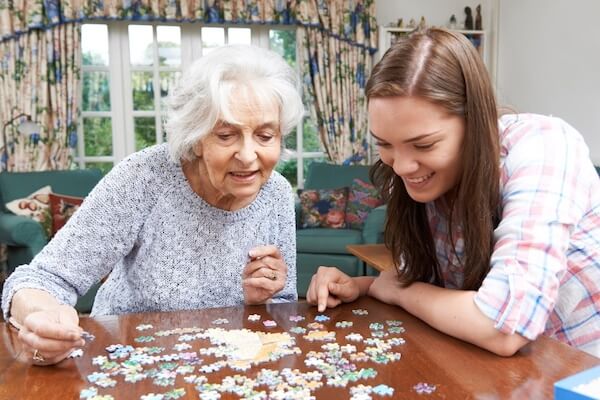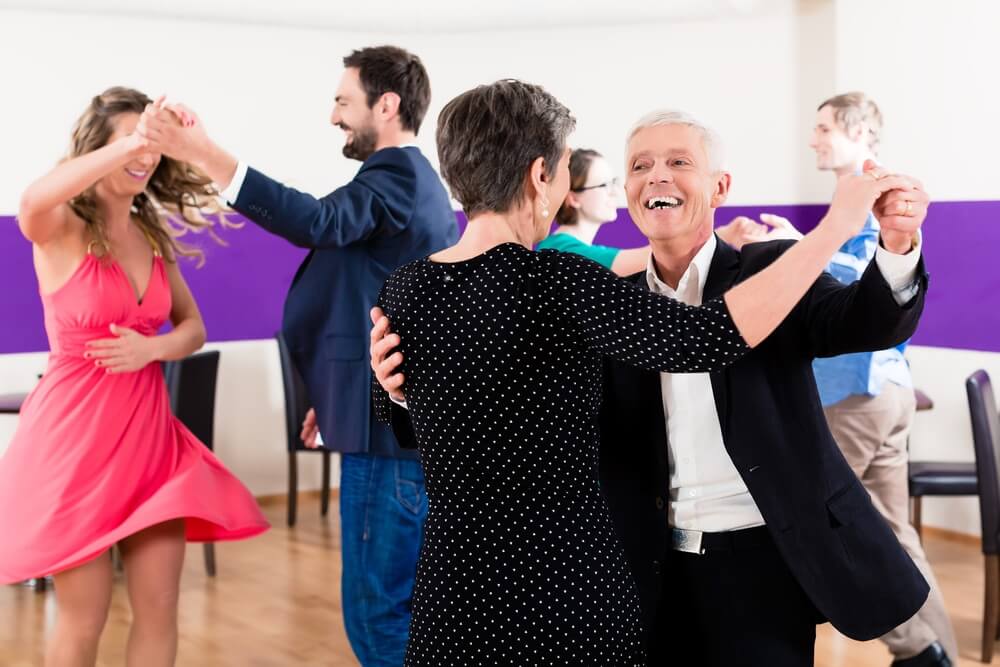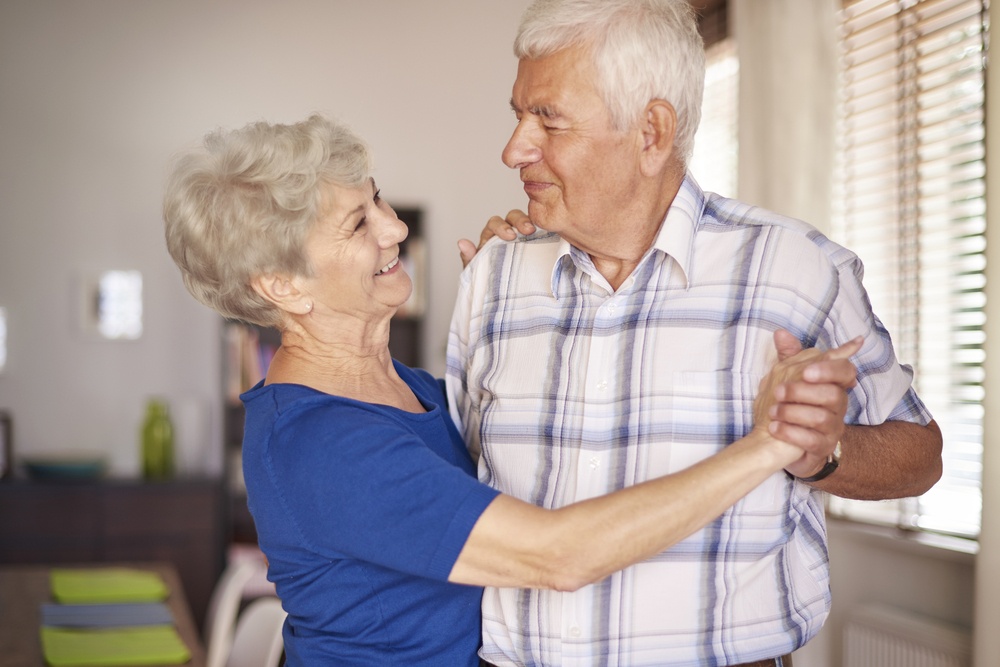 Most people are aware that doing activities like reading, working on puzzles and even playing a musical instrument can stimulate your brain and help you perform better mentally. But did you know dancing has been shown to have a positive effect on cognitive functions too?
Most people are aware that doing activities like reading, working on puzzles and even playing a musical instrument can stimulate your brain and help you perform better mentally. But did you know dancing has been shown to have a positive effect on cognitive functions too?
Not only is dancing good for your health, a great way to meet people, and a whole lot of fun, but a study published in the New England Journal of Medicine shows that dancing can also help make you smarter! Now, that’s something to tap your feet to!
Want to put this to the test and give dancing a try?
{{cta(‘195d076a-7276-4c0d-81e1-2ca8ac09892c’)}}
The study followed senior citizens over age 75 who had not yet developed signs of dementia. They surveyed their leisure activities and mental health for 20 years to see which activities had the most influence on their cognitive abilities.
Study participants who had higher levels of leisure activities such as dancing had a lower risk of dementia. In fact, compared to other activities including bicycling, reading, swimming, playing golf and doing brain puzzles, regular dancing reduced the risk of dementia more than any other activity.
- Reading – 35% reduced risk
- Bicycling and swimming – 0%
- Doing crossword puzzles at least four days a week – 47% reduced risk
- Playing golf – 0%
- Dancing frequently – 76% reduced risk. The greatest risk reduction of any activity studied.
Why Dance?
 Dancing incorporates complex movements and motor learning, creative expression and interpersonal communication. Dancing activates many areas of the brain, including those not typically involved in movement.
Dancing incorporates complex movements and motor learning, creative expression and interpersonal communication. Dancing activates many areas of the brain, including those not typically involved in movement.
Areas of the brain that are most affected by aging can be stimulated and rewired to stay alert and functioning properly. Trying new things like dancing, creates new pathways in the brain and helps improve mental capabilities.
If you keep many brain pathways active while simultaneously generating new ones, you help maintain your brain’s health and fitness. Dancing requires you to constantly learn new steps, engaging your brain and helping to rewire it.
Dancers also need to recognize patterns and think about what their next move will be. One of the reasons dancing helps improve cognitive abilities is that dancers are required to make many split-second decisions, causing people to use their critical thinking skills frequently and repeatedly.
In partner dancing, dancers respond to one another with strategies and gestures. Through this, even more areas of the brain are utilized for visual processing and planning and decision making.
 The benefits of learning new steps as well as studying patterns is good for developing minds, adult minds, and even minds at risk of decline! Students at Arthur Murray routinely tell us that they feel more sharp and on-task than they had in their pre-dancing lives.
The benefits of learning new steps as well as studying patterns is good for developing minds, adult minds, and even minds at risk of decline! Students at Arthur Murray routinely tell us that they feel more sharp and on-task than they had in their pre-dancing lives.
In addition to making your brain work, dancers frequently report reduced stress and depression and increased energy. Dancing helps you get exercise, makes you more confident and helps you look and feel younger—both physically and mentally.
Not only can dancing help ward off diseases such as Alzheimer’s and dementia, but it is an activity that is good for your health in every way possible! Dancing works your body, your brain, and improves your social life. Ultimately, dancing helps you become the best version of yourself possible! And who doesn’t want that?
{{cta(‘a7d6e4e1-a911-4f2b-8b43-6210da6d93fb’)}}

Leave a Reply